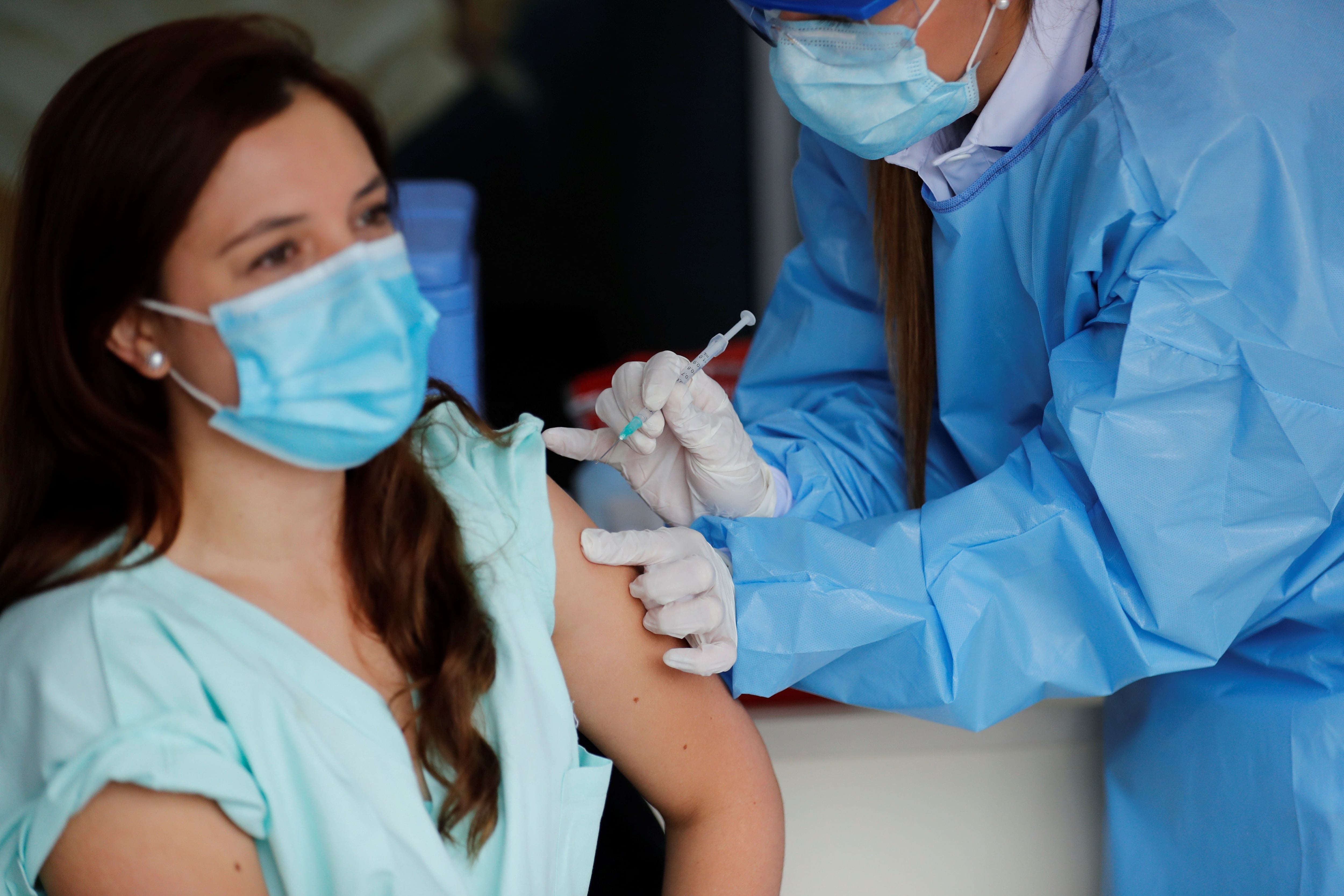
In a finding that reinforces the safety of COVID-19 vaccines, a new study shows that while injections do not increase the risk of rare neurological problems, COVID-19 infection could.
In the paper published in the British Medical Journal, specialists from the University of Oxford, in charge of the general direction of research, indicated that vaccination against COVID-19 did not increase the risks of rare neurological diseases among more than 8 million people who had received at least one dose of AstraZeneca (AZN.L), Pfizer/BioNTech (22UAY.de ), Moderna (MRNA.O) or Johnson & Johnson (JNJ.N).
Following the rapid development of SARS-CoV-2 vaccines, 9.2 billion doses have been administered through national vaccination programmes. To date, five SARS-CoV-2 vaccines have received conditional marketing authorisation from the European Medicines Agency. These include two mRNA vaccines: Pfizer-BioNTech and Moderna; two viral vector vaccines: Oxford-AstraZeneca and Janssen/Johnson & Johnson; and a recombinant spike protein nanoparticle vaccine with adjuvant: Novavax. All of these vaccines have demonstrated high efficacy in preventing severe COVID-19 and acceptable safety profiles in clinical trials. However, possible adverse events related to these new vaccines have been reported.
Specialists to develop their paper focused on four neurological disorders related to the immune system: Bell's palsy (facial weakness), encephalomyelitis (inflammation of the brain and spinal cord), Guillain-Barré syndrome (a nervous condition) and transverse myelitis (inflammation of the spinal cord).

They leveraged large data sets routinely collected, including millions of vaccinated people to study the possible association between COVID-19 vaccines and the short-term risk of developing some neurological disorders. To put these risks into context, they also studied the association between SARS-CoV-2 infection and the risk of these immune-mediated neurological events.
His study included 735,870 unvaccinated people who had tested positive for coronavirus, as well as older data on an additional 14.3 million people in the general population for a baseline estimate of rates of neurological conditions prior to the pandemic. The data were obtained from databases belonging to the United Kingdom and Spain.
In this study, the specialists found that three of them, Bell's palsy (facial weakness), encephalomyelitis (inflammation of the brain and spinal cord) and Guillain-Barré syndrome (a nervous condition), were not more common in vaccine recipients than in the general population, according to scientists reported in their paper. The fourth, transverse myelitis (inflammation of the spinal cord), occurred very rarely in the framework of his analysis (less than 5 cases in 8.3 million people vaccinated).
In this way, they were able to confirm that, on average, post-vaccination rates coincided with those expected in the general population for the first three conditions. Meanwhile, rates of transverse myelitis were rare.
However, researchers did observe higher rates of Bell's palsy, encephalomyelitis, and Guillain-Barré syndrome in survivors of COVID-19. Disorder rates were measured within 21 days after the first dose of the vaccine, 90 days after a positive COVID-19 test, and between 2017 and 2019 in the general population group.

“We found no sign of safety for any of the immune-mediated neurological events studied after vaccination against COVID-19,” explained Daniel Prieto-Alhambra, of the Center for Statistics in Medicine of the Department of Orthopedics, Rheumatology and Rheumatology of Nuffield and Sciences Musculoskeletal at Oxford University, director in charge of the study. In response to reports that some people developed Guillain-Barré syndrome after receiving AstraZeneca or Pfizer vaccines, the European Medicines Agency cited Guillain-Barré syndrome as a rare side effect of vaccines. “We may never be able to say exactly what caused a person to develop a neurological condition, but vaccination against COVID-19 is a very unlikely reason for most,” the authors concluded in the published paper.
“More research is needed to look for long-term adverse events of vaccination and SARS-CoV-2 infection, as well as to study the effects of vaccines on different age groups,” the specialists said. But even so, they highlighted the low probability that neurological effects originate from vaccines.
KEEP READING
Últimas Noticias
Debanhi Escobar: they secured the motel where she was found lifeless in a cistern
Members of the Specialized Prosecutor's Office in Nuevo León secured the Nueva Castilla Motel as part of the investigations into the case

The oldest person in the world died at the age of 119
Kane Tanaka lived in Japan. She was born six months earlier than George Orwell, the same year that the Wright brothers first flew, and Marie Curie became the first woman to win a Nobel Prize

Macabre find in CDMX: they left a body bagged and tied in a taxi
The body was left in the back seats of the car. It was covered with black bags and tied with industrial tape
The eagles of America will face Manchester City in a duel of legends. Here are the details
The top Mexican football champion will play a match with Pep Guardiola's squad in the Lone Star Cup

Why is it good to bring dogs out to know the world when they are puppies
A so-called protection against the spread of diseases threatens the integral development of dogs




